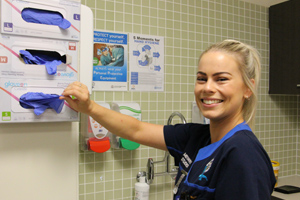Cancer Services
What is a gynaecologic cancer?
A gynaecologic cancer is a cancer of the female reproductive organ. This includes primary cancers of the vulva, vagina, uterine cervix, uterine body, fallopian tubes, ovaries, peritoneum and the placenta. Cancers arising in other organs, such as the bowel, breast, pancreas, and kidneys, can also spread directly or through your lymphatic system, blood stream or the peritoneal cavity to the female reproductive organs. These include:
- Ovarian Cancer
- Uterine Cancer (endometrial or womb)
- Vulval Cancer
- Vaginal Cancer
- Cervical Cancer
Who is at risk of a gynaecologic cancer?
We don’t always know why women develop gynaecological cancers. Some women inherit a genetic mutation that puts them at risk of developing these cancers in their lifetime. A strong family history of cancer may also indicate an increased risk. Some women with immunodeficiency are also at risk of cancer of the vulva, vagina or the cervix. Some women have other risk factors such as smoking or obesity.




